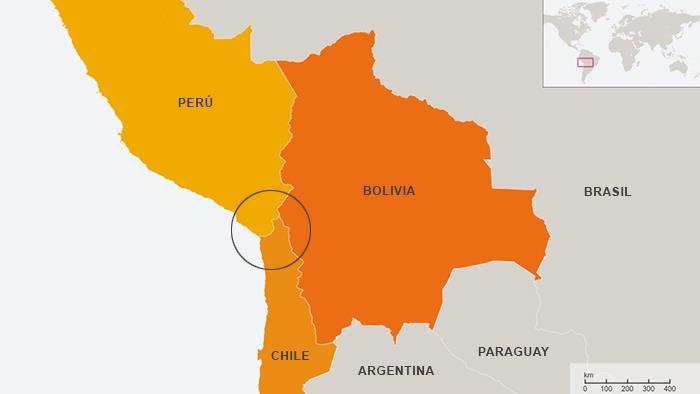
403
Sorry!!
Error! We're sorry, but the page you were looking for doesn't exist.
After Decades Of Distance, Chile And Bolivia Test A Practical Reset
(MENAFN- The Rio Times) A small but telling scene signaled a shift: Chile's president attended Bolivia's presidential swearing-in-something Santiago had skipped for nearly two decades-and then publicly urged a“new stage” built on border security, trade, and a revived binational business council.
The message was clear to businesspeople and travelers alike: park the century-old sovereignty dispute and fix the everyday bottlenecks that make life and commerce harder than they need to be.
The backstory matters. Formal diplomatic relations were downgraded in the late 1970s over Bolivia's demand for sovereign access to the Pacific.
A landmark international court ruling in 2018 said Chile had no legal obligation to negotiate that access, freezing grand ambitions but leaving room for practical cooperation.
Since then, quiet technical talks have multiplied-on customs, police cooperation, water, transport, and smuggling-because both sides face costly, visible problems at the frontier.
For expats and foreign readers, think about the map. Bolivia's west funnels fuel, food, and manufactured goods through Chilean ports, especially Arica.
Delays or disputes at the docks ripple into price spikes inland, while Chile's northern towns feel the strain of irregular migration and organized crime.

After Decades Of Distance, Chile And Bolivia Test A Practical Reset
A business council with real private-sector input could standardize paperwork, align sanitary rules, and speed cargo. Joint border teams and shared data could choke contraband and human trafficking without changing a single line on a map.
Politics will tug against pragmatism. Any gesture risks being spun at home as capitulation, and border crime can upend goodwill overnight.
That is why the safest path is measurable deliverables:
The story behind the story is simpler than the slogans: when ideology cools, competence can take the wheel.
If both governments stay focused on security, lawful trade, and service standards, the reset will feel real where it counts-at checkpoints, in warehouses, and on supermarket shelves.
It won't rewrite history or redraw maps. But it can lower costs, cut risk, and bring a tense neighborhood a step closer to normal.
The message was clear to businesspeople and travelers alike: park the century-old sovereignty dispute and fix the everyday bottlenecks that make life and commerce harder than they need to be.
The backstory matters. Formal diplomatic relations were downgraded in the late 1970s over Bolivia's demand for sovereign access to the Pacific.
A landmark international court ruling in 2018 said Chile had no legal obligation to negotiate that access, freezing grand ambitions but leaving room for practical cooperation.
Since then, quiet technical talks have multiplied-on customs, police cooperation, water, transport, and smuggling-because both sides face costly, visible problems at the frontier.
For expats and foreign readers, think about the map. Bolivia's west funnels fuel, food, and manufactured goods through Chilean ports, especially Arica.
Delays or disputes at the docks ripple into price spikes inland, while Chile's northern towns feel the strain of irregular migration and organized crime.

After Decades Of Distance, Chile And Bolivia Test A Practical Reset
A business council with real private-sector input could standardize paperwork, align sanitary rules, and speed cargo. Joint border teams and shared data could choke contraband and human trafficking without changing a single line on a map.
Politics will tug against pragmatism. Any gesture risks being spun at home as capitulation, and border crime can upend goodwill overnight.
That is why the safest path is measurable deliverables:
a published timetable for the council's first session;
a border-management memorandum with targets for cargo clearance times;
24/7 contact points between customs and police; and
a rapid-response lane for critical goods when port queues build.
The story behind the story is simpler than the slogans: when ideology cools, competence can take the wheel.
If both governments stay focused on security, lawful trade, and service standards, the reset will feel real where it counts-at checkpoints, in warehouses, and on supermarket shelves.
It won't rewrite history or redraw maps. But it can lower costs, cut risk, and bring a tense neighborhood a step closer to normal.

Legal Disclaimer:
MENAFN provides the
information “as is” without warranty of any kind. We do not accept
any responsibility or liability for the accuracy, content, images,
videos, licenses, completeness, legality, or reliability of the information
contained in this article. If you have any complaints or copyright
issues related to this article, kindly contact the provider above.
















Comments
No comment